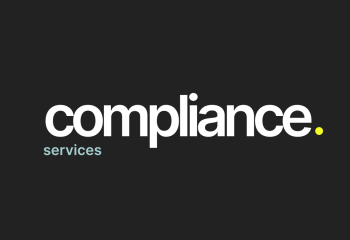KEY UPDATES IN DECREE NO. 70/2025/ND-CP
Views: 4240
(3).png)
On March 20, 2025, the Government issued Decree No. 70/2025/ND-CP, which amends and supplements several articles of Decree No. 123/2020/ND-CP concerning invoices and documents. This decree will take effect on June 1, 2025. The main highlights are as follows:
1. Introduction of E-Commercial Invoices
E-Commercial Invoices: Designed for businesses exporting goods and services abroad. These invoices must be transmitted electronically to the tax authorities and comply with specific content requirements and standardized data formats.
If the exporter does not meet the requirements on electronicically transmission to the tax authority, they may choose to apply electronic VAT invoice or electronic sales invoice.
2. Timing of Invoice Issuance
Exported Goods: The time of invoice issuance for exported goods is determined by the seller but must be no later than the next working day of customs clearance completion.
Service Provision to foreign organizations and individuals : The invoice must be issued either upon completion of the service or at the time the service fee is collected, whichever occurs first.
3. Detailed Invoice Descriptions
The decree emphasizes the need for detailed and accurate descriptions of goods and services on e-invoices, such as:
-
E-invoice of restaurant: must detail name of food and beverage, quantity, unit price, and total amount.
-
E-invoice of passenger transportation service: must detail vehicle registration plate, departure and destination.
4. Invoices from Cash Registers
Business households and individuals with annual revenue of VND 1 billion or more, who sell goods and/or provide services to end customers, are required to use electronic invoices generated from cash registers. These invoices must be integrated with and transmit data to the tax authorities.
5. Invoice Adjustments
Abolishes the regulation on e-invoice cancellation.
Sellers can now create an adjustment invoice to replace multiple incorrect e-invoices in the same month for the same buyer.
Before adjusting or replacing an incorrectly issued electronic invoice, the seller and buyer must create a written agreement detailing the error. f the buyer is an individual, the seller must notify them or post a notice on their website.
6. Electronic Invoices for E-commerce
E-commerce platforms must integrate their invoicing systems with the tax systems to ensure seamless data transmission and compliance.
The invoices must include detailed and accurate descriptions of goods and services, quantities, unit prices, and total amounts.
Foreign suppliers without a permanent establishment in Vietnam, conducting e-commerce or digital platform-based business, must also comply with these e-invoice regulations if they voluntarily register to use electronic invoices.
7. Digital Signing and Invoice Declaration
The time of signing and sending the code to the Tax authority is no later than the next working day from time of invoice issuance.
The seller declares tax according to the date of invoice issuance; the buyer declares tax based on the period of receiving the invoice.
8. E-Invoice Registration Updates
The electronic information portal of the Tax Department automatically cross-references information with the National Population Database or the Electronic Identification and Authentication System. In cases where the legal representative of an enterprise or business household has previously or currently serves as the legal representative of an enterprise and is found to have absconded or committed tax and invoice violations, the Tax authority will issue a request for explanation.
---
Written by: Mrs. Nguyen Nhac Thien An - Partner, Managing Director at ALTAS Accounting.
Date: 15/04/2025
(3).png)
















![[LEGAL UPDATE] WHAT TECHNOLOGY SHOULD BE DEPLOYED BY NOTARY OFFICES FOR FULFILMENT OF PERSONAL DATA PROTECTION OBLIGATIONS? [LEGAL UPDATE] WHAT TECHNOLOGY SHOULD BE DEPLOYED BY NOTARY OFFICES FOR FULFILMENT OF PERSONAL DATA PROTECTION OBLIGATIONS?](thumbs/210x144x1/upload/news/legal-update-j-jan2025-2-5840.png)

![[LEGAL UPDATE] KEY HIGHLIGHTS OF THE NEW LAW ON NOTARIZATION 2024 [LEGAL UPDATE] KEY HIGHLIGHTS OF THE NEW LAW ON NOTARIZATION 2024](thumbs/210x144x1/upload/news/legal-update-j-jan2025-6-9279.png)
![[LEGAL UPDATE] ELECTRONIC IDENTIFICATION FOR FOREIGNERS WITHOUT TEMPORARY RESIDENCE CARDS IN VIETNAM [LEGAL UPDATE] ELECTRONIC IDENTIFICATION FOR FOREIGNERS WITHOUT TEMPORARY RESIDENCE CARDS IN VIETNAM](thumbs/210x144x1/upload/news/legal-update-j-jan2025-5-5270.png)
![[LEGAL UPDATE] TRANSITIONING TAX IDENTIFICATION NUMBERS TO PERSONAL IDENTIFICATION NUMBERS FROM JULY 1, 2025: ROADMAP AND PRACTICAL NOTES [LEGAL UPDATE] TRANSITIONING TAX IDENTIFICATION NUMBERS TO PERSONAL IDENTIFICATION NUMBERS FROM JULY 1, 2025: ROADMAP AND PRACTICAL NOTES](thumbs/210x144x1/upload/news/legal-update-j-jan2025-3-6884.png)
![[LEGAL UPDATE] CIRCULAR 03/2025/TT-NHNN - A NEW LEGAL FRAMEWORK FOR INDIRECT INVESTMENT ACCOUNT [LEGAL UPDATE] CIRCULAR 03/2025/TT-NHNN - A NEW LEGAL FRAMEWORK FOR INDIRECT INVESTMENT ACCOUNT](thumbs/210x144x1/upload/news/legal-update-j-jan2025-2-2494.png)







